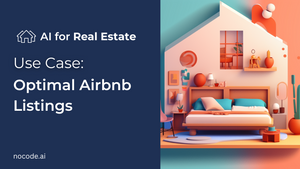AI is rapidly transforming the healthcare industry, with one of the most promising applications being personalized medicine. Personalized medicine is an approach to healthcare that takes into account individual variability in genes, environment, and lifestyle for each patient. This approach has the potential to improve patient outcomes and reduce healthcare costs by delivering more effective and targeted treatments.
Examples of Personalized Medicine in Action
AI can be used to personalize medicine in a number of ways. For example, AI can be used to:
- Identify patients who are at risk for developing a disease. AI can analyze large datasets of patient data to identify patterns that are associated with disease risk. This information can then be used to develop targeted prevention strategies for at-risk individuals.
- Diagnose diseases more accurately. AI can be used to analyze medical images and other data to help doctors diagnose diseases more accurately. This can lead to earlier diagnosis and treatment, which can improve patient outcomes.
- Predict how patients will respond to treatments. AI can be used to analyze patient data to predict how they will respond to different treatments. This information can then be used to personalize treatment plans for each patient.
- Develop new treatments. AI can be used to analyze large datasets of genetic and clinical data to identify new drug targets and develop new treatments for diseases.
AI is still a relatively new technology, but it has the potential to revolutionize personalized medicine. By taking advantage of AI, we can deliver more effective and targeted treatments to patients, improve patient outcomes, and reduce healthcare costs.
Wearables are a game changer for Healthcare
The combination of wearables and AI is set to revolutionize healthcare by capturing and analyzing health data, assisting with early diagnostics, automating processes, and supporting decision-making. Wearables, including smartwatches and fitness trackers, can monitor heart rate, body temperature, blood pressure, and glucose levels. AI can expand its capabilities, allowing wearables to understand user movements and optimize health metrics. As wearable technology becomes more popular, it can help with tasks like making appointments and tracking personal health information. The integration of wearables and AI can improve patient engagement, reduce wait times for results, and provide personalized care by collecting and analyzing data on physical activities, habits, and health conditions. This will enable doctors to monitor patients more effectively and deliver better, more targeted treatments.
A good example is HealthGPT, an experimental iOS app from Stanford that allows users to interact with their health data stored in the Apple Health app using natural language.
Challenges of Personalized Medicine
Here are some of the challenges that need to be addressed in order to fully realize the potential of AI for personalized medicine:
- Data privacy and security. AI systems collect and analyze large amounts of patient data. It is important to ensure that this data is kept private and secure.
- Interpretability. AI systems can be very complex, making it difficult to understand how they make decisions. It is important to develop AI systems that are interpretable so that doctors can understand how the system arrived at its decision and trust the system's recommendations.
- Cost. AI systems can be expensive to develop and deploy. It is important to find ways to make AI systems more affordable so that they can be used by more healthcare providers.
Despite these challenges, the potential benefits of AI for personalized medicine are significant. AI has the potential to improve patient outcomes, reduce healthcare costs, and make healthcare more accessible to everyone. As AI technology continues to develop, we can expect to see even more innovative and effective applications of AI in personalized medicine in the years to come.




